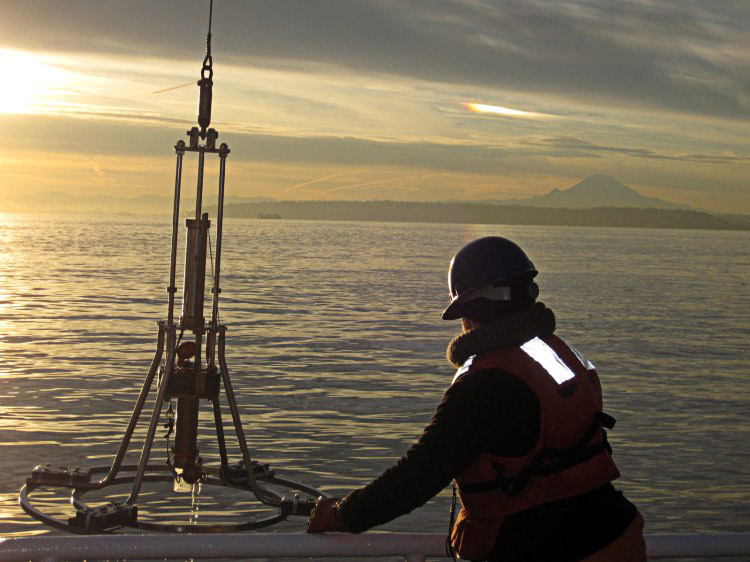At a June 26 meeting, NCCOS-funded ECOHAB project investigators concluded that climate change could increase the window of opportunity for blooms of the toxic dinoflagellate,Alexandrium catenella to occur. In light of this information, state officials expressed strong interest in seasonal HAB forecasts, while industry and local managers requested daily to weekly forecasts.

NOS-sponsored scientists map HAB cyst hotspots in picturesque Puget Sound. (credit: Vera Trainer, NOAA)
Although future climate change will affect many environmental variables, from runoff to coastal upwelling, the increase in water temperature is the major factor that may lead to a longer HAB season. Stakeholders, including state, county, and tribal representatives, shellfish growers and harvesters, and volunteer HAB monitors, expressed satisfaction with information provided by four annual cyst maps (3 from this project) showing local HAB hot spots and overall declining cyst abundances since 2005.
A. catenellaproduces a suite of toxins that accumulate in shellfish. When humans consume the toxic shellfish, the can become seriously ill or die from Paralytic Shellfish Poisoning (PSP). To reduce PSP occurrence, state (includingWashington), county, and tribal agencies conduct rigorous monitoring of shellfish toxicity and ban harvesting when toxicity approaches a threshold. They are aided by volunteer HAB cell monitoring groups such as SoundToxins, which provide early warning of HAB events.
For more information, contact Quay.Dortch@noaa.gov.
 Official websites use .gov
A .gov website belongs to an official government organization in the United States.
Official websites use .gov
A .gov website belongs to an official government organization in the United States. Secure .gov websites use HTTPS
A lock or https:// means you’ve safely connected to the .gov website. Share sensitive information only on official, secure websites.
Secure .gov websites use HTTPS
A lock or https:// means you’ve safely connected to the .gov website. Share sensitive information only on official, secure websites.